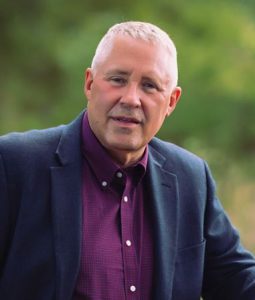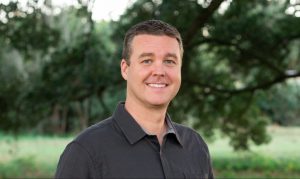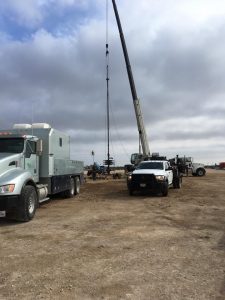“It’s super competitive.”
Those were the first words out of the mouth of Max Killingsworth, a wireline professional working in the Permian Basin, when asked what conditions are like for wireline companies trying to maintain market share in the ever-bustling Basin.
Killingsworth is Operations Manager for Unconventional in the Odessa District for KLX Energy Services. He said there is an overabundance of service companies, wireline included.
At Bullzeye Oilfield Services, another OFS outfit that has a wireline division, co-owner Keith Maxey said, “We’re getting busier and busier and workers are getting harder and harder to find. Experienced workers, that is.”
Asked why that was so, Maxey replied, “It appears that a bunch of them got laid off [in the Covid-related downturn] and they’re not coming back.”
Killingsworth, meanwhile, blamed the surplus of competition as the reason why margins are very low. “The market is saturated.”
KLX Energy is active not just in the Permian but in the D.J. (Denver/Julesburg) Basin and in North Dakota. But the Permian is paramount, where OFS companies are concerned. Why? Killingsworth attributes it to scale. “This [the Permian Basin] is the standard. It’s such a prolific field that this is where everybody’s working. All the majors are here. All the large independents are here. The small independents are here. It’s got all the infrastructure already here. And it’s been here for almost a hundred years.”
KLX does plug-and-perf jobs, but they also do conventional work—remedial work, which some term “day work.” KLX (URL: KlxEnergy.com) does pipe recovery, fishing, well logging, and other such specialties. Their clientele is essentially “Everybody”—all the majors [E&Ps], and all the others. “We deal with everybody. We do almost everything Halliburton does… but on a smaller scale. That is, we don’t do offshore and we’re not international.”
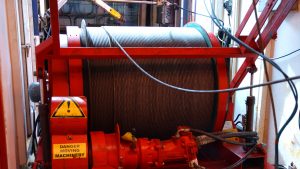
Wireline cable gets fed from a drum that is mounted in the rear of a wireline truck. The cable feeds downhole into a well, and when the moment comes to take actions with downhole tools, the cable also serves as the electrical conductor to transmit signals to the tools.
Finding the Formula
Many professionals in the well completions world, on the E&P side, are relatively new to their jobs, and experienced people on the services side are finding ways to step up and help fill the knowledge gap for them. Jonathan Deshler, senior vice president at Integrity Wireline, said he volunteered his own knowhow recently when he met a completions engineer out on location and learned that the man had been in this role only two years. Deshler, who has 17 years’ experience in similar capacities, shared advice that helped solve some of the engineer’s problems on site.
Deshler said his favor was well received. “He said, ‘I really appreciate that, but why would you help me to do my work?'”
Deshler responded that in doing so, he (Deshler) was helping himself, and his own employer. “This market has become commoditized,” Deshler said, citing the fact that price alone dictates too much of the decision-making today. “If I can make your job easier, you’re less likely to go somewhere else, and we’re more valuable to you.”

Houston-based Horizontal Wireline Services is among the biggest independent companies in its sector. Its new EcoDrive (electric-powered) Wireline Unit achieved 2,321 ft/min on a recent pumpdown job for Ameredev, an independent E&P company based in Austin.
Deshler remarked that the completions engineer acknowledged the logic of that. Going on, Deshler added: “Let’s just not hide our motives here—I’m trying to make my company more valuable to you so that you want to keep us as your partner.”
But what, exactly, is fully meant by being “commoditized”? Being commoditized means more than just having all considerations reduced to price considerations. It’s a phenomenon that hurts the E&P side equally as much as it hurts the services side.
Killingsworth, with KLX, sees commoditization in a similar way. “It seems like it doesn’t matter if you have the most stellar system or equipment today. The bottom line is that performance is getting treated as secondary to cost.”
When businesses are commoditized, matters are oversimplified. And that’s a trend that has ripple effects.
Here’s why: On the E&P side, the traditional decision makers, which in the case of well completion work is completion engineers or completion managers, have delegated to others much of the work of screening vendors. They have farmed that role out to staffers in the procurement end of their business, or to consultants. And when these individuals come to the task, the decision-making criteria itself starts to look different.
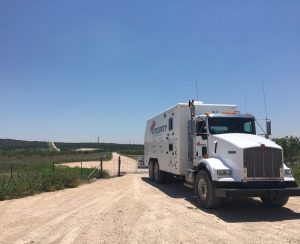
Integrity Wireline does most of its business in the Permian Basin. The company has a yard in Midland. (IntegrityWireline.com)
The completions manager, while he knows what he wants, is less involved in the screening and so his own preferences factor less in the decision process. A middle-manager type, by contrast, worries more about whether, for instance, the wireline truck that will be on site is clean and comfortable. He might be obliged to sit in it.
Same could be true for the completions engineer, but being more intimately familiar with the frac jobs, he is occupied with other aspects as well.
What does the completions engineer value? According to Deshler, that can be an array of things.
“He cares about how many stages per month he’s getting,” Deshler said. “He cares about supply constraints of critical equipment, like greaseless lines. He cares about the fracture geometry he’s getting from the perforating charges and the reliability of the gun systems. And of course all of this must be delivered safely.”
Integrity Wireline is just one of many independent wireline companies that have survived multiple downturns and now are taking aim on growth in 2023 and beyond. For them, the challenge is perception. How are they perceived? Do they get lumped with the low-end providers, and do they slash their own prices to get their share of whatever’s available? Or can they differentiate themselves and thereby win more favorable rates and build relationships with the best E&Ps?
Deshler said that his company can compete on price. But he’d rather not compete on price only. He’d rather compete as a company that brings more to the table than others do.
And, again, that’s a situation a lot of companies today find themselves in. Service companies who put a premium on quality want to be recognized as merchants of quality. They do not want to be commoditized.
Another trend Deshler has noticed is that it is harder than ever, here in this post-Covid world, to get oneself face-to-face with a decision maker in the well completions industry.
“Many people still work from home, or on a hybrid schedule, or [if they’re not home] they go to a wellsite. Even scheduling meetings is harder than it used to be.”
Hitting the Bullseye
Maxey, at Bullzeye, has been an adapter and a realist. The company has changed as the oilfield has changed.
Bullzeye has done work in the Permian but in more recent times has concentrated on the Eagle Ford and the Almos Sand. “All of our operations have been moved to Alice, Texas,” Maxey said.
Maxey supervised a team that did the first pumpdown. “It was the first plug-and-shoot,” Maxey said.
“Now, I had pumped logging tools down inside of the drill pipe when I was with Schlumberger,” he said. “But [in a later capacity] we had the idea to try to pump a composite bridge plug and perforating guns. Now we were running tractors and it was taking too long and so we tried it and it worked. Then Basic Energy Services bought me out about three months after that.”
“As for us, personally, we’re not doing pumpdowns [plug-and-perf jobs] now,” Maxey said. “It just got so competitive that about two years ago, we just decided that it’s not for us. The money just wasn’t there, and the people, the personnel. And so we’re doing mostly working on our own wells right now. And at the same time we have pipe recovery trucks.”
That’s not the only change he’s seen.
The open hole (well logging) business has changed as well.
“Schlumberger’s business has gone way down because operators are not calling on wireline units to log these wells anymore. They’re logging them with the drill string while they’re drilling. Open hole logging is all done before they run casing. Then again, they’ve got some tools now that have been developed here in the last 10 years that are getting pretty darn good at getting a good set of logs through casing.”
Like Deshler and Killingsworth, Maxey agrees that the competition is heavy and margins are tight. And that the services sector is commoditized.
Killingsworth, for his part, doesn’t see change coming soon. Asked if he thought that wireline work in the field of well completions was growing or shrinking, Killingsworth took the middle path: “I think it’s holding strong right now,” he said. “We had a big increase there for a while. I think it’s just kind of plateaued right now. I think it’s more of what the government’s got us doing than anything.”
In other words, government interference does more to determine activity these days than does the free market.
Killingsworth agrees that the backlogged inventory of DUCs (drilled but uncompleted wells) has pretty much been worked off. “There’s not that many left,” he said. “We’re following the rigs right now.”
KLX has acquired a couple of electric wireline trucks and they have two more under construction. They shoot modular guns (newest generation) only. But he says he feels there is not much difference in technology, comparing one type of gun system to another. “Reliability. That’s what everybody’s shooting for. Reliability.”
So… is there anything else that could help drive business? What about higher prices for crude?
“There’s no telling. Like I said, whatever the government’s got going on, that’s what’s deciding things.”
By Jesse Mullins










